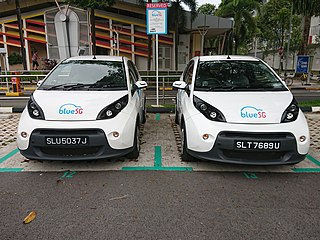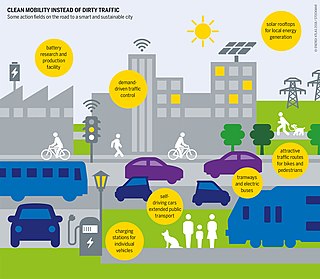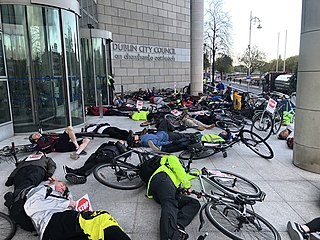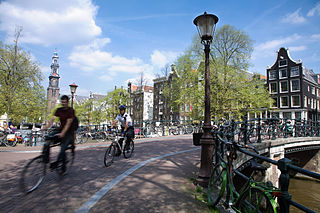White Bicycle Plan
Luud Schimmelpennink emerged on the Dutch social political scene as the main person behind the famous 1965 White Bicycle Plan in Amsterdam, whereby he and colleagues collected several hundred bikes, painted them white, and left them around the city to be freely used. This initiative, called the White Bicycle Plan, originally existed as one in a series of White Plans proposed in the street magazine and youth movement Provo. The Dutch Provos were, by the standards of the times, a radical group that thought to provoke the establishment with playful demonstrations.
On 22 February 1967 Schimmelpennink was elected to the Municipal Council of the City of Amsterdam, but was unable to get the needed political support for his White Bicycle Plan. However, the basic model that Schimmelpennink and his colleagues created became an inspiration and model for Community bicycle programs which today are gaining serious momentum in a growing number of European cities, including Helsinki, Copenhagen, Amsterdam, Lyons and Villeurbanne.
Latest White Bicycle system design summary
Schimmelpennink’s updated White Bicycle system is supported by a patented smart card technology intended to counter misuse. The integrated access, parking and control systems discourages theft, and the bicycles are immediately identifiable due to their unusual design. Registered users can access the White Bicycles in a network of unmanned parking lots around the city. Such parking lots are equipped with a main console and have racks that hold up to ten bikes. When a club member inserts a card with an embedded microchip into the console, they are asked to identify their final destination and at that time book the use of a bicycle for thirty minutes. The central computer identifies the user and makes a reservation for them at a free parking slot near their indicated destination point. The cyclist then has half an hour to get from point A to point B and deposit the bike as programmed. This is the basic structure of the Lyons bicycle project and others that have come on line in the last few years. Schimmelpennink has freely contributed his knowledge to such initiatives.

Utility cycling encompasses any cycling done simply as a means of transport rather than as a sport or leisure activity. It is the original and most common type of cycling in the world. Cycling mobility is one of the various types of private transport and a major part of individual mobility.

A bicycle-sharing system, bike share program, public bicycle scheme, or public bike share (PBS) scheme, is a shared transport service where bicycles are available for shared use by individuals at low cost.

Provo was a Dutch counterculture movement in the mid-1960s that focused on provoking violent responses from authorities using non-violent bait. It was preceded by the nozem movement and followed by the hippie movement. Provo was founded, on 25 May 1965, by Robert Jasper Grootveld, an anti-smoking activist, and the anarchists Roel van Duijn and Rob Stolk. The term was used for the movement as a whole and for individual members. Provo was officially disbanded on 13 May 1967.

The car-free movement is a social movement centering the belief that large and/or high-speed motorized vehicles are too dominant in modern life, particularly in urban areas such as cities and suburbs. It is a broad, informal, emergent network of individuals and organizations, including social activists, urban planners, transportation engineers, environmentalists and others. The goal of the movement is to establish places where motorized vehicle use is greatly reduced or eliminated, by converting road and parking space to other public uses and rebuilding compact urban environments where most destinations are within easy reach by other means, including walking, cycling, public transport, personal transporters, and mobility as a service.

Carsharing or car sharing or car clubs (UK) is a model of car rental where people rent cars for short periods of time, often by the hour. It differs from traditional car rental in that the owners of the cars are often private individuals themselves, and the car sharing facilitator is generally distinct from the car owner. Car sharing is part of a larger trend of shared mobility.

Sustainable transport refers to ways of transportation that are sustainable in terms of their social and environmental impacts. Components for evaluating sustainability include the particular vehicles used for road, water or air transport; the source of energy; and the infrastructure used to accommodate the transport. Transport operations and logistics as well as transit-oriented development are also involved in evaluation. Transportation sustainability is largely being measured by transportation system effectiveness and efficiency as well as the environmental and climate impacts of the system. Transport systems have significant impacts on the environment, accounting for between 20% and 25% of world energy consumption and carbon dioxide emissions. The majority of the emissions, almost 97%, came from direct burning of fossil fuels. In 2019, about 95% of the fuel came from fossil sources. The main source of greenhouse gas emissions in the European Union is transportation. In 2019 it contributes to about 31% of global emissions and 24% of emissions in the EU. In addition, up to the COVID-19 pandemic, emissions have only increased in this one sector. Greenhouse gas emissions from transport are increasing at a faster rate than any other energy using sector. Road transport is also a major contributor to local air pollution and smog.

Cycling in Melbourne is an important mode of transport, fitness, sport and recreation in many parts of the city. After a period of significant decline through the mid to late 20th century, additional infrastructure investment, changing transport preferences and increasing congestion has resulted in a resurgence in the popularity of cycling for transport. This is assisted by Melbourne's natural characteristics of relatively flat topography and generally mild climate.

Cycling advocacy consists of activities that call for, promote or enable increased adoption and support for cycling and improved safety and convenience for cyclists, usually within urbanized areas or semi-urban regions. Issues of concern typically include policy, administrative and legal changes ; advocating and establishing better cycling infrastructure ; public education regarding the health, transportational and environmental benefits of cycling for both individuals and communities, cycling and motoring skills; and increasing public and political support for bicycling.
Francis Eric Knight Britton was an American political scientist and sustainability activist who has lived and worked in Paris, France, since 1969. As the main convenor of The Commons: Open Society Sustainability Initiative and its various networks, he is well known for promoting integrated public transport, carsharing and bike sharing.

Cycling is the second-most common mode of transport in the Netherlands, with 36% of Dutch people listing the bicycle as their most frequent way of getting around on a typical day, as opposed to the car (45%) and public transport (11%). Cycling has a modal share of 27% of all trips nationwide. In cities this is even higher, such as Amsterdam which has 38%, and Zwolle 46%. This high frequency of bicycle travel is enabled by excellent cycling infrastructure such as cycle paths, cycle tracks, protected intersections, ample bicycle parking and by making cycling routes shorter and more direct than car routes.

The Witkar was one of the first technology-based carsharing projects in the world. It is the invention of Dutch social inventor and politician Luud Schimmelpennink, an industrial designer and at the time Amsterdam city councillor. The project was opened by minister Irene Vorrink on 21 March 1974.

Vélib' Métropole is a large-scale public bicycle sharing system in Paris, France. The system encompasses more than 16,000 bikes and 1,400 stations. The name Vélib' is a portmanteau of the French words vélo ("bicycle") and liberté ("freedom").

Toronto, Ontario, like many North American cities, has slowly been expanding its purpose-built cycling infrastructure. The number of cyclists in Toronto has been increasing progressively, particularly in the city's downtown core. As cycling conditions improve, a cycling culture has grown and alternatives such as automobiles are seen as less attractive. The politics of providing resources for cyclists, particularly dedicated bike lanes, has been contentious, particularly since the 2010s.

A bicycle parking station, or bicycle garage, is a building or structure designed for use as a bicycle parking facility. Such a facility can be as simple as a lockable bike cage or shed or as complex as a purpose-built multi-level building: the common purpose is that they provide secure bicycle parking. Bicycle parking stations also go by names such as bike stations, bicycle centers and cycle centers, among many others.

Shared transport or shared mobility is a transportation system where travelers share a vehicle either simultaneously as a group or over time as personal rental, and in the process share the cost of the journey. It is a transportation strategy that allows users to access transportation services on an as-needed basis, and can be regarded as a hybrid between private vehicle use and mass or public transport. Shared mobility is an umbrella term that encompasses a variety of transportation modes including carsharing, Bicycle-sharing systems, ridesharing companies, carpools, and microtransit.

The Institute for Transportation and Development Policy (ITDP) is a non-governmental non-profit organization that focuses on developing bus rapid transit (BRT) systems, promoting biking, walking, and non-motorized transport, and improving private bus operators margins. Other programs include parking reform, traffic demand management, and global climate and transport policy. According to its mission statement, ITDP is committed to "promoting sustainable and equitable transportation worldwide."

Amsterdam is well known as one of the most bicycle-friendly cities, with high levels of bicycle infrastructure, planning and funding, tourism—as well as high levels of bike theft, safety concerns and overcrowding in places.

Cycling infrastructure is all infrastructure cyclists are allowed to use. Bikeways include bike paths, bike lanes, cycle tracks, rail trails and, where permitted, sidewalks. Roads used by motorists are also cycling infrastructure, except where cyclists are barred such as many freeways/motorways. It includes amenities such as bike racks for parking, shelters, service centers and specialized traffic signs and signals. The more cycling infrastructure, the more people get about by bicycle.

Ecovolis was a community based bike sharing program in Tirana, Albania, launched on March 22, 2011, from an environmental NGO called Social Stimulating Alternatives Program (PASS). The system was based on 6 bike stations, respectively staffed by two employees in two shifts. During its time, the Ecovolis program was successful in increasing bicycle use in Tirana.

Cycling is a popular mode of transport and recreational sport in the Philippines. Bicycles were first introduced to the archipelago in the 1880s during the Spanish colonial occupation of the Philippines and served as a common mode of transport, especially among the local mestizo population.



















